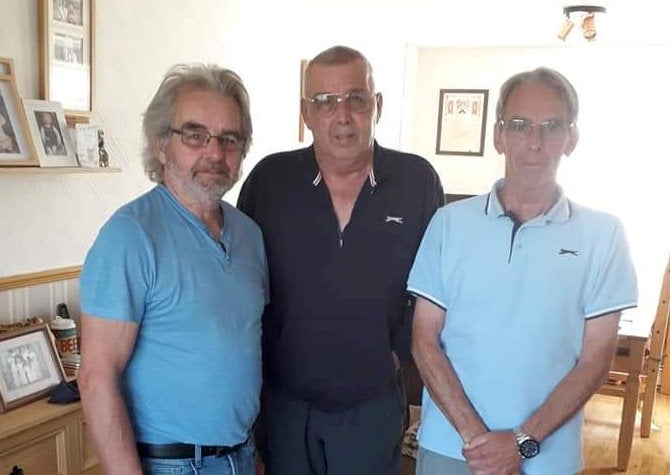Woman’s agony as her father and uncle die four days apart after ‘one in a million’ diagnosis
Stacey Pollard, 42, was forced to say goodbye to her beloved relatives in the same week earlier this year after they both died from aggressive brain tumours

Your support helps us to tell the story
From reproductive rights to climate change to Big Tech, The Independent is on the ground when the story is developing. Whether it's investigating the financials of Elon Musk's pro-Trump PAC or producing our latest documentary, 'The A Word', which shines a light on the American women fighting for reproductive rights, we know how important it is to parse out the facts from the messaging.
At such a critical moment in US history, we need reporters on the ground. Your donation allows us to keep sending journalists to speak to both sides of the story.
The Independent is trusted by Americans across the entire political spectrum. And unlike many other quality news outlets, we choose not to lock Americans out of our reporting and analysis with paywalls. We believe quality journalism should be available to everyone, paid for by those who can afford it.
Your support makes all the difference.A woman has shared her devastation after losing her father and uncle to the same type of brain tumour just four days apart.
In January 2022 Stacey Pollard, 42, was forced to say goodbye to her father, Geoff Pollard, and her uncle, Pete Pollard, four days apart, after they both died from glioblastoma (GBM). The brothers were told the chance of them both being diagnosed with a GBM was one in a million.
Stacey, who works in Asda’s café, Estover, is taking part in Brain Tumour Research’s 100 Squats or Star Jumps a Day in November, a fundraising challenge that aims to find a cure for the disease.
She said: “Anything I can do to prevent another family from going through the same thing is completely worth my time and effort.”
Geoff, the second youngest of four siblings, from Horrabridge, West Devon, started experiencing blackouts in April 2021, months after he was given the all-clear following treatment for prostate cancer. A scan at Derriford Hospital confirmed the father-of-two had a brain tumour.
Stacey said: “We were told without treatment he would have three months. The brain tumour wasn’t related to his prostate cancer diagnosis, doctors said it was ‘one of those things’.
“We were all devastated, one minute he was okay and the next we were faced with a terminal diagnosis.”
Weeks later Pete, from Plymouth but living in France at the time, was also diagnosed.
Stacey, added: “We couldn’t believe what was happening when my uncle told us he had the same tumour as my dad.
“They were both concerned the tumour could be genetic and asked if me, my sister, and Pete’s daughter, Samantha, might need testing, but the healthcare team concluded it was a coincidence.
“Dad and uncle Pete had very different experiences with the disease. To look and be around dad you wouldn’t know there was anything wrong with him, right up until he died.
“Uncle Pete lost mobility on one side of his body, his cognition made him appear confused as if he suffered a stroke.”

Doctors said they were not aware of hereditary factors in the double diagnosis. However, further research to determine the cause of GBMs is desperately needed.
One in three people know someone affected by a brain tumour. They kill more men under the age of 70 than prostate cancer, yet historically just 1% of the national spend on cancer research has been allocated to brain tumours.
Geoff underwent an operation to remove the mass, but chemotherapy proved ineffective due to the aggressive nature of the tumour.
He went into hospital in December 2021 and never made it home. He died on 14 January 2022, aged 64.
Pete died four days later at a hospital close to his home in France, aged 69.
In memory of Geoff and Pete, Stacey will complete a combination of 100 squats and star jumps each day in November to raise awareness and fundraise for Brain Tumour Research.

She said: “This disease is horrendous and seeing what my dad and uncle went through shows how the same type of tumour can impact people differently.
“We need to understand all types of tumours to stop this from happening which is why I will continue to campaign to find a cure.”
Dr Karen Noble, director of research, policy, and innovation at Brain Tumour Research, said: “Brain tumours are indiscriminate; they can affect anyone at any age.
“To have these two diagnoses in the same family is an extremely rare occurrence, less than a one in a million chance.
“If we are to change the stark facts around survival of this disease, then we simply must invest more into discovery science – the route to a cure.”



Join our commenting forum
Join thought-provoking conversations, follow other Independent readers and see their replies
Comments